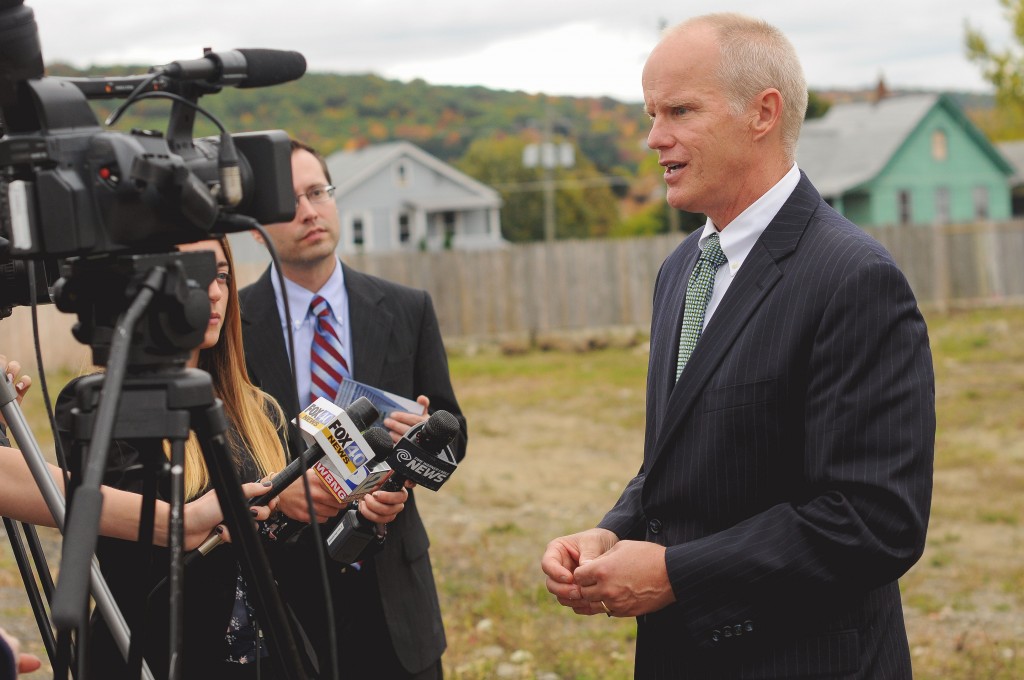
Binghamton University furthered its reach into the Downtown area on Thursday morning by breaking ground for a $19 million, 35,000-square-foot project.
United States Sen. Charles Schumer, among dozens of politicians and other guests, presided over the start of construction on the Southern Tier High Technology Incubator, a facility that will partner private companies with nearby colleges and universities.
The incubator, which is less than five blocks from the University Downtown Center, will provide free offices and lab space to companies that are part of the tax-exempt START-UP NY program.
“We hope to be doing things that are scientifically based and have manufacturing possibilities,” BU President Harvey Stenger said. “New materials and new devices in health care as well as new materials and new devices in energy harvesting and storage.”
Schumer explained that the incubator would temporarily support companies until they could afford their own space to work, and then it would invite new companies to move in for at least a few years.
“It keeps going and going, it’s not a one-time deal,” Schumer said. “The companies that will be here when it opens in 2016 will eventually leave and establish new facilities in the Binghamton Southern Tier area. And then new companies will come in, and then they will leave.”
Of 12 spots for companies available in the incubator, five have already been approved to use the facilities and are currently using office space on BU’s campus.
Kevin Drumm, president of SUNY Broome, said that the incubator was not just about helping companies, but students as well.
“As students are going through their college careers, [they will] get a hands-on experience at a real honest-to-goodness business incubator,” Drumm said.
According to Drumm, the top floor of the building complex is set to house the SUNY Broome Bridge to Entrepreneurial Excellence Program, which will help college students create businesses of their own.
Many speakers at the opening ceremony praised the scope of collaboration on the project, which included resources from the federal and state government, Broome County government and even Cornell and Colgate Universities.
According to Schumer, the federal Economic Development Administration pledged $2 million for the project because of its potential to create jobs across the region.
“The criteria they used was which projects had the greatest potential to create future jobs,” Schumer said. “In other words, for every dollar spent, how many new and good paying jobs will occur. The fact that we won, when there was so much competition in every corner of this nation, shows the amazing potential in this project.”
Binghamton Mayor Rich David said this project would improve both economic and aesthetic prospects of the city, beyond the central Downtown area.
“This is the first investment by the University that, frankly, is in a neighborhood in transition, just east of Downtown,” David said. “We have taken literally an entire city block down and we are going to revitalize the area.”


